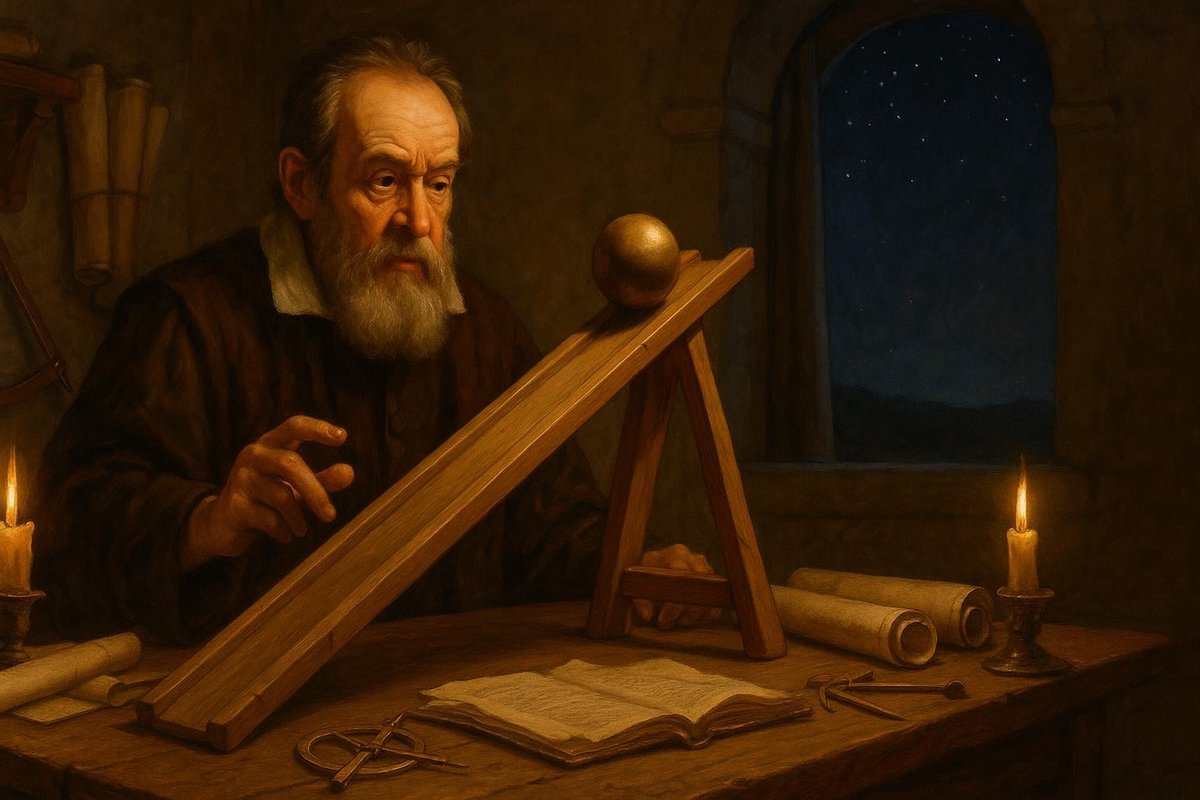
In the grand tapestry of scientific history, few experiments stand out as vividly as Galileo’s inclined plane. It was not just an inquiry into the nature of motion, but a pioneering demonstration of precision and repeatability in scientific experimentation. Galileo, with his inquisitive mind and meticulous approach, laid down the foundations for what would become the scientific method, changing the way we understand the world.
Early Influences: The Seeds of Inquiry
Galileo Galilei, born in 1564 in Pisa, Italy, was a man driven by curiosity. His early education in a monastery exposed him to classical philosophy, yet it was his mathematical studies that truly captivated him.
- His father’s influence, a musician and mathematician, sparked an early interest in quantitative analysis.
- Exposure to the works of Archimedes and Euclid during his studies at the University of Pisa fueled his desire to understand the laws of nature through mathematics.
- Galileo’s early career as a professor of mathematics helped refine his logical approach to problems, setting the stage for his later experimental work.
Interestingly, it was during this period of exploration that Galileo questioned Aristotle’s long-held views on physics, particularly those concerning motion. This skepticism laid the groundwork for his own theories and experiments.
Mental Models: Crafting an Experiment
Galileo’s mental models were shaped by a desire to quantify motion, a heretical thought at a time when qualitative Aristotelian physics dominated.
- His experiment with the inclined plane was designed to slow down the acceleration of falling objects, allowing him to measure it more precisely.
- He used a polished bronze ball rolling down a wooden ramp, marking time with a water clock—a setup ingeniously simple yet revolutionary.
- The focus was on repeating the experiment multiple times to ensure the accuracy and reliability of his observations.
By using the inclined plane, Galileo was able to extend the distance over which motion occurred, making it easier to measure and analyze. This shift from qualitative to quantitative analysis was a seismic change in scientific methodology.
Challenges & Resilience: Defying the Norm
Galileo faced immense skepticism from contemporaries who were deeply entrenched in Aristotelian doctrine.
- Despite opposition from university authorities and fellow scholars, Galileo persisted, driven by the evidence his own eyes and methods provided.
- His careful documentation and repeatability of experiments paved the way for empirical validation, challenging centuries-old beliefs.
- The criticism only fueled his resolve, leading to further experiments and theories that eventually gained traction across Europe.
Galileo’s resilience in the face of criticism is a testament to his courage and dedication to uncovering the truth through empirical evidence—a hallmark of modern science.
Legacy: The Ripple Effect of Precision
Galileo’s inclined plane experiment was more than a test of motion; it was a catalyst for the scientific revolution.
- His insistence on precision and repeatability became the bedrock of the scientific method, influencing countless generations of scientists.
- Galileo’s work laid the groundwork for Newton’s laws of motion, which would further transform our understanding of physics.
- The principles of measurement and analysis he pioneered continue to underpin scientific inquiry today.
No wonder Galileo is often referred to as the ‘father of modern science.’ His approach to experimentation set new standards for what it means to study the natural world scientifically.
In conclusion, Galileo’s methodical approach and pursuit of precision were revolutionary. His inclined plane experiment was not only a triumph of inquiry but a beacon that illuminated the path for modern science. As time goes on, his legacy remains a powerful reminder of the importance of precision and repeatability in unlocking nature’s secrets.
Fuel Someone Else’s Curiosity
Consider sharing this fascinating glimpse into Galileo’s world with friends or family who might appreciate the story of how a single experiment could spark a revolution in thought. Encourage conversations about the importance of precision and the curiosity that drives scientific discovery. Who knows? You might inspire the next great thinker to follow in Galileo’s footsteps.

Leave a Reply